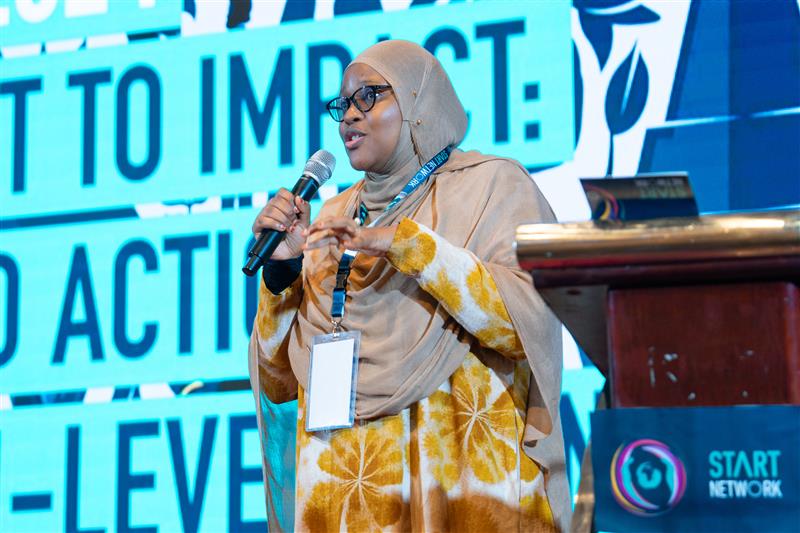The Start Network Assembly is an annual platform for the network to explore locally led and proactive solutions that enable fundamental system change. As a hub coordinator, the assembly provided a unique opportunity to exchange ideas with other hubs and learn from each other’s journeys. It also offered a chance for one-on-one interactions with the Start Network staff to discuss upcoming activities for the Somali Hub, specifically on strengthening its disaster risk financing (DRF) resource mobilisation, and due diligence capacity. We also explored broader discussions on the hub's long-term development goals and strategies for evaluating its impact.
Some of the key sessions included inspirational keynote speeches on Migration and Gender Based Violence, the Marketplace where different hubs and Start Network initiatives were showcased, anda strategy update session focusing on the five keys to change: Purpose, Power, Practice, Resources and Relationships. We also had various breakout sessions across Networker/Innovator and Funder/Influencer streams.
Key moments that stood out during my time at the Assembly:
Power at Work in the Humanitarian System by Smruti Patel
This session was a standout for me. It explored various facets of power, including Spaces (closed, invited, claimed), Levels (Global, National, Local), and Forms (Visible, Hidden, Invisible). The session encouraged us to view the hub through this lens, recognising that we hold intrinsic power and that power is as much about the person wielding it (the man behind the gun).
Indigenous Knowledge and an Effective Locally Led System by Wakanyi Hoffman
This session offered valuable insights into addressing local needs through local solutions while integrating technologies such as Artificial Intelligence (AI). This aligns closely with Somalia Humanitarian Hub’s vision, which will work with communities to explore incorporating Indigenous knowledge for anticipatory action. A key quote from Wakanyi Hoffman stood out: "Humanitarian workers are facilitators, not saviors; partners, not service providers" – a powerful reminder of our role in working alongside affected populations and communities.
Hub Health Check Committee (HHCC)
This session clarified the role of the HHCC, not only in ensuring peer accountability,which is often misunderstood as policing, but also in supporting hubs throughout their development journey. We work alongside hubs to troubleshoot and help solve the challenges they face.
As a member of the Hub Health Check Committee, the assembly allowed us to reflect on our 2024 progress and plan for its activities in 2025. A key action point that I’m taking forward into 2025 is sharing hub stories in real time —showcasing the impact of hubs at various stages of their development, rather than waiting until they reach maturity.
We look forward to the actions committed during the Assembly and more collaborative efforts as we progress our journey with the Somali hub.

